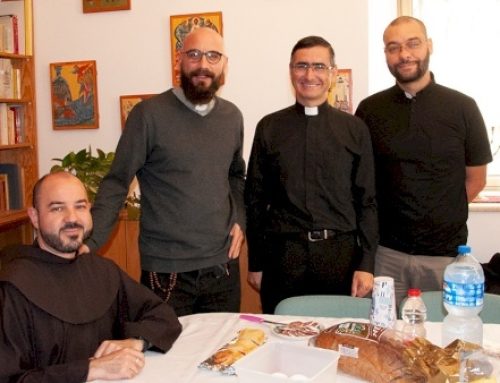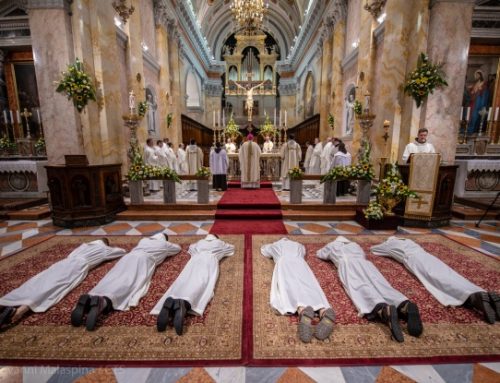Association will distribute a brochure saying the movement fosters hatred of Muslims and opposition to Mideast peace. A movement leader says the brochure presents a stereotype of Christian Zionists.
Media – HCEF
Author:Nathan Olivarez-Giles
Publisher: Los Angeles Times
The brochure says Christian Zionism "fosters fear and hatred of Muslims and non-Western Christians" and "can lead to the dehumanization of Israelis and Palestinians." Its distribution reflects the concerns of Christians who are trying to combat what they call the growing influence of Christian Zionism in the U.S.
"If we don't speak up against it — Christian Zionism — then people will think we don't care or that we agree with it," said the Rev. John Hubers, supervisor of mission programs in the Middle East and South Asia for the Reformed Church in America.
The Reformed Church in America is one of the 35 Christian church bodies that make up the National Council of the Churches of Christ in the USA, which wrote the brochure and began distributing it this month.
"To say we're dehumanizing Israelis and Palestinians with our support for Israel dehumanizes us," said David Brog, executive director of Christians United for Israel, one of the most prominent Christian Zionist organizations in the United States. The group was started in 2006 by controversial televangelist John Hagee, senior pastor of Cornerstone Church in San Antonio.
But what exactly do Christian Zionists believe?
Christian Zionists say they believe that the creation of Israel was ordained by God.
Detractors say Christian Zionism fosters the belief that the return of Jews to Israel has fulfilled one of the steps that will set the stage for Armageddon and the return of Jesus Christ to Earth. These detractors say Christian Zionists want to hasten that end time by promoting conflict in the Middle East.
About 20 million to 40 million people in the U.S. are Christian Zionists, according to the Pew Forum on Religion and Public Life.
The National Council of Churches includes more than 100,000 individual churches, made up of about 45 million churchgoers, and is hoping it can use its membership to curb the political and social influence of Christian Zionism, said Antonios Kireopoulos, the group's director of interfaith relations.
The brochure will be handed out in member churches.
As a resource for those churches, the council is also creating an analysis of parts of the Bible that Christian Zionists use to justify their views, he said.
"We have to wake up Christians," said the Rev. Gwynne Guibord, of the Episcopal Diocese of Los Angeles, also a member of the council.
"We have to show Christians and others that there is another way of looking at these things, a way that isn't so antithetical to who Jesus was," she said.
Guibord and other Christian and Jewish leaders in Southern California formed Christians Concerned About Christian Zionism, which held a conference on the issue Oct. 4.
The conference, "Christian Zionism: Rapture and the Holy Land, Theology and Politics," was held at Pasadena Presbyterian Church. Among its speakers was Rabbi Haim Beliak, who teaches at the Leo Baeck Temple in Los Angeles and spoke on the influence of Hagee and Christians United for Israel.
"My religion and my Zionism have been hijacked by Christian Zionists and their Jewish friends," Beliak said. "Most of us have the view that the outline for the possibility of peace has been sitting in a drawer ready to be implemented for at least 15 years, and most of us think Christian Zionism is an impediment toward peace in the Middle East."
Beliak said at the conference that Hagee and other Christian Zionist leaders are using Israel to further their own Armageddon agenda.
The brochure, which was passed out for the first time at the conference, says Christian Zionism leads to a conclusion that "involves the death of all non-Christians, including Jews, through apocalyptic warfare or divine judgment" and "is not based on traditional teaching or doctrines of the Church."
Brog said Christians United for Israel rejects the brochure.
"I would say the whole flier seems to me to be describing a stereotype of a Christian Zionist," Brog said. "There are some Christian Zionists who are opposed to the peace process in the Middle East, but that does not define a movement of millions of Christian people."
He said the group believes simply that Israel should make all decisions regarding its land use and peace effort — not the U.S., Palestinians or anyone else.
"Once we start discussing how we go about supporting Israel is when the disagreements come in," he said. "When you get beyond that, there are lots of disagreements, and that's why we don't really speak about that."
As for the argument over Israel's status as political body or godly appointment, Brog said, there is room for disagreement.
"America is a shining city on the hill ordained by God. We have that tradition right here in America, and we do see Israel's promise in the Scripture," he said.
Brog said that one way the group urges the federal government to support Israel is through "A National Night for Israel," in which members of Christians United for Israel gather in Washington to meet with lawmakers. In 2007 about 3,000 members made the trip, he said.
Brog, who is Jewish, said that he's always felt "complete comfort" working with Christians United for Israel and that the group has the best interests of Israel and Jews at heart.
"I wish
Brog said a debate might surprise those who oppose Christian Zionist beliefs.
"If we were sitting in a room together, we might find we don't disagree as much as they might think we would," he said.
Olivarez-Giles is a Times staff writer.



